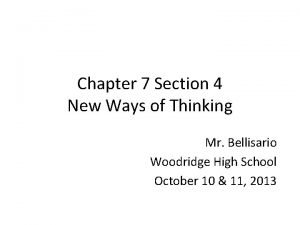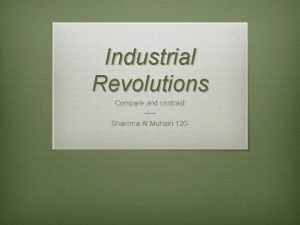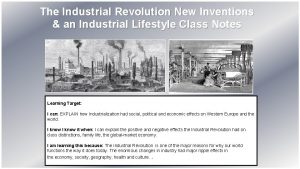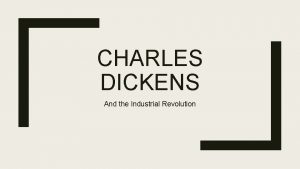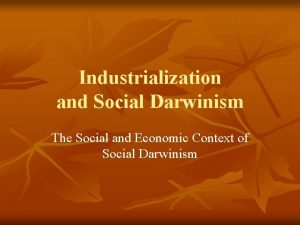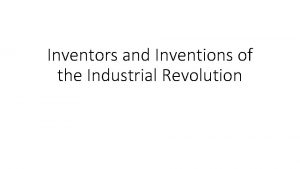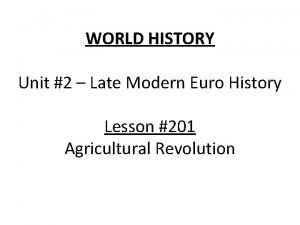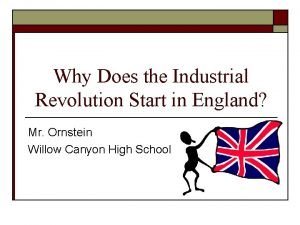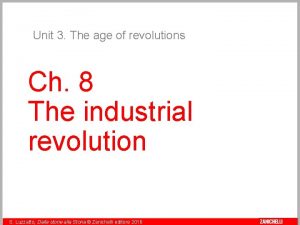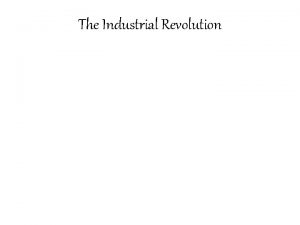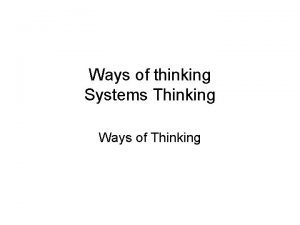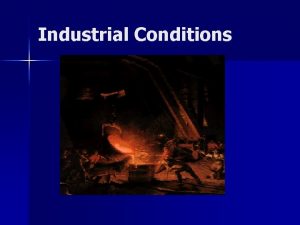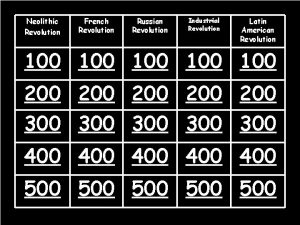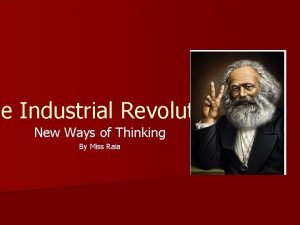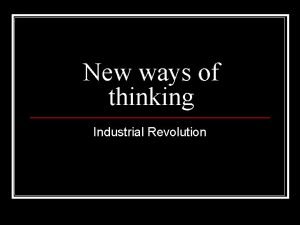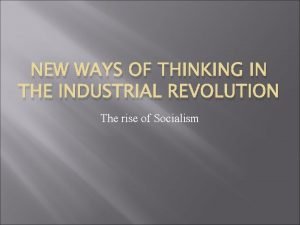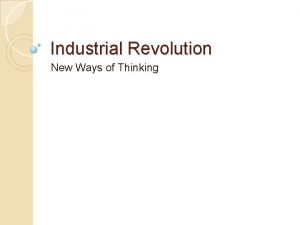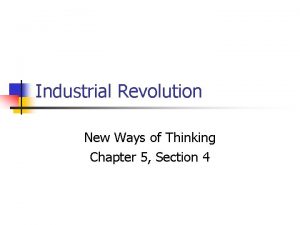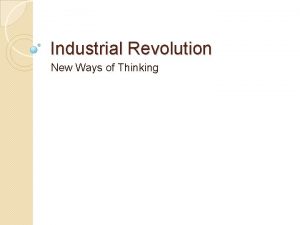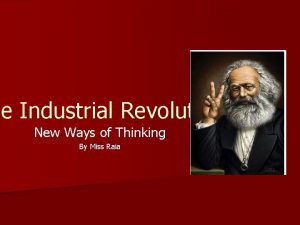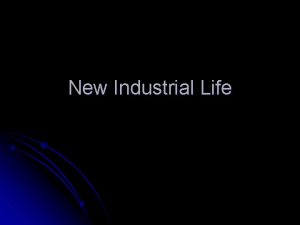Industrial Revolution and New Ways of Thinking How













- Slides: 13

Industrial Revolution and New Ways of Thinking How to end poverty and the bad conditions that came with the Industrial Revolution?

Adam Smith • Enlightenment Idea • Laissez-faire economics (government keeps its hands off!) • Free market economy - unregulated exchange of goods and services

Thomas Malthus

n n n Wrote about population, helped shape economic thinking Population would grow faster than the food supply He was wrong- technology helped food supply keep up, but poverty continued

David Ricardo

§ British economist § “Poor people had too many children”, § This increase supply of labor, led to lower wages and higher unemployment/poverty § Family Planning/control was needed (roots of Communist Ideas)

Jeremy Bentham

Jeremy Bentham • Utilitarianism • Goal of society should be “the greatest happiness for the greatest number. ”

Other thinkers, such as Jeremy Bentham, believed there should be some government intervention in the economy. Bentham believed that the goal of society should be “the greatest happiness for the greatest number of citizens. ” This idea was called utilitarianism. Laws should be judged by their utility to benefit people.

Socialism n n Reaction to laissez-faire/Capitalism People as a whole, rather than private individuals would own and operate the “means of production. ”

Karl Marx

n n German Philosopher 1848 with Freidrich Engels write The Communist Manifesto New form of Socialism - Communism - class struggle between employers and employees (Haves and have not's or wealthy and poor)

Marxism and The Manifesto • Economics driving force in history • History of class struggles between the haves and have nots • Haves - bourgeoisie, owned the means of production • Have-nots - proletariat, “working class. ” • In the end the proletariat would win and a class less society would be set up (Communist Countries today)
 Chapter 7 section 4 new ways of thinking
Chapter 7 section 4 new ways of thinking Romans 3:10
Romans 3:10 Pleasure predicting sheet
Pleasure predicting sheet First and second industrial revolutions
First and second industrial revolutions Negative effects of the industrial revolution
Negative effects of the industrial revolution Charles dickens view on the industrial revolution
Charles dickens view on the industrial revolution Social darwinism definition industrial revolution
Social darwinism definition industrial revolution Bessemer process
Bessemer process Russian revolution vs french revolution
Russian revolution vs french revolution How could the french revolution been avoided
How could the french revolution been avoided Third agricultural revolution
Third agricultural revolution Enclosure movement
Enclosure movement Why did the industrial revolution start in britain
Why did the industrial revolution start in britain The industrial revolution zanichelli
The industrial revolution zanichelli
